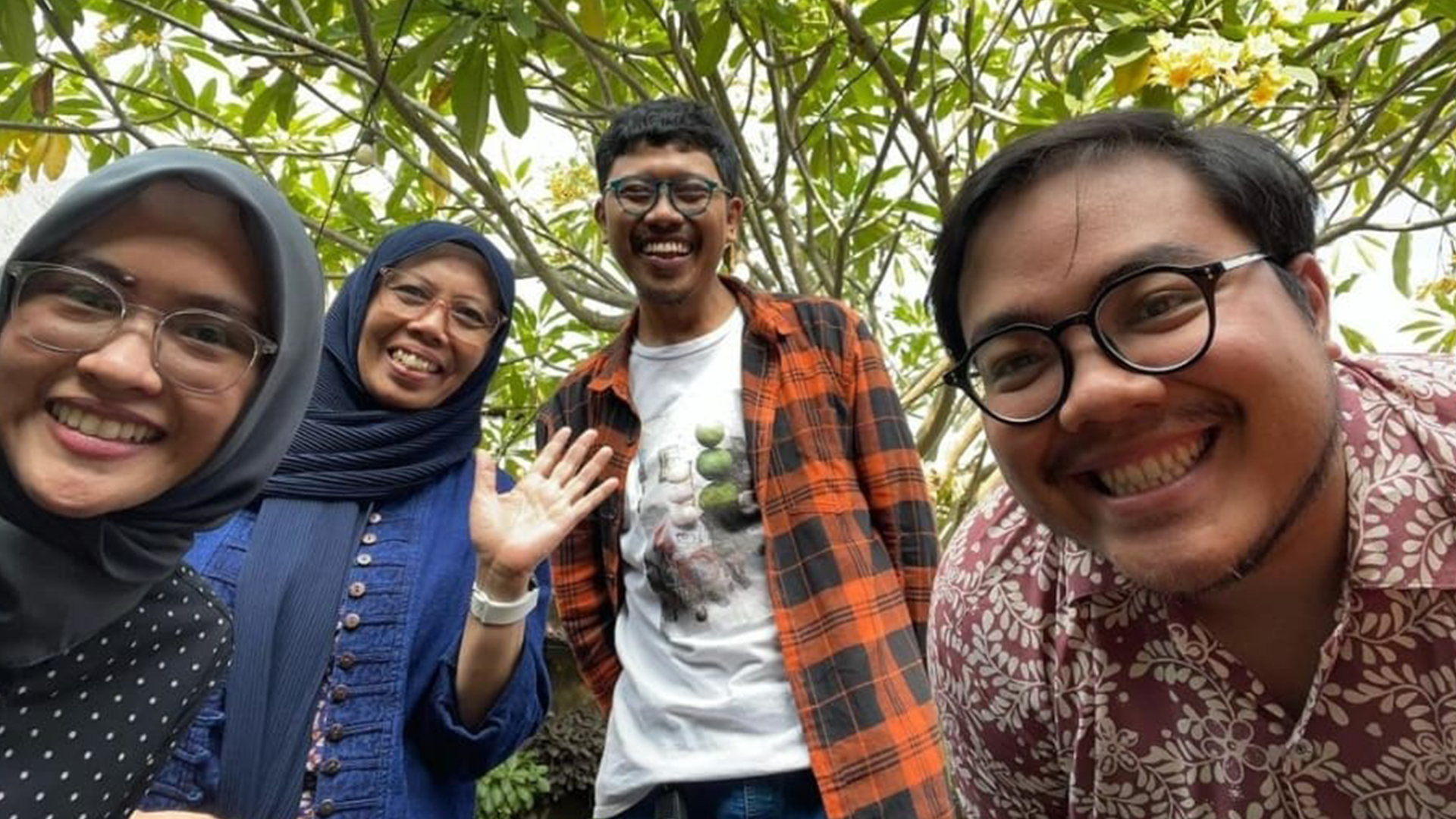Starting Point
Pari Kolektif, or "Panen Apa Hari Ini" (What Are We Harvesting Today), is a Yogyakarta-based collective focused on urban farming and local food distribution. Established with a vision of promoting sustainable agriculture, the group incorporates art into its initiatives. It believes art can add value to an object while raising public awareness of existing issues. As an art-based movement, it also has access to funding opportunities. It has utilised this access to empower women farmers in communities.
Anang, the founder of Pari Kolektif, holds degrees in Visual Communication Design and Film/TV from ISI Yogyakarta. He believes in Pari Kolektif's flexible nature, which he utilises to address the issues faced by individuals in his network, primarily women farmers. He insists that he is a mere facilitator of initiatives, which are always led and coordinated by women farmers.
Peace Journey
Pari Kolektif actively addresses land disputes and agricultural crises through art and community initiatives. Witnessing urban apathy towards land-grabbing for projects like the Yogyakarta International Airport (YIA), the foundation initiated to sell produce from farmlands affected by the YIA project. It prepared artwork depicting how the YIA project affects the environment and welfare of women's farms and invited women farmers to sell their produce in urban spots. The women farmers are invited to share their experiences related to farming and facing the challenges posed by the YIA project. Pari Kolektif also utilises their artistic sensibilities to create artwork that not only enhances the marketability of fresh produce from women farmers but also depicts a sense of urgency to bridge the often-disconnected urban and rural communities in response to societal issues, particularly agricultural and agrarian concerns.
Other initiatives are related to access to funding. It has received several funds to create empowerment work through art, such as an art exhibit at the annual Yogyakarta Art Festival. Moreover, when farmers were facing the issue of drought, Pari Kolektif uses its funding to create art that highlights the severity of drought experienced by the farmers, while at the same time giving some of the funding for the art to the farmers to purchase equipment to allow them to irrigate their farms using an electric pump. Furthermore, there is funding for empowerment art as Pari Kolektif and Kelompok Wanita Tani (Women Farmers Group) established Milangkori, a programme engaging Kelompok Wanita Tani (Women Farmers Groups) in community-based tourism to highlight the importance of local agricultural knowledge.
Incidentally, these initiatives have become a platform for women farmers from different places to exchange knowledge. For example, Pari Kolektif allowed some women farmers to learn from other women farmers to farm different vegetables.
Success Stories
Pari Kolektif has overcome significant challenges, particularly in mobilising women farmers constrained by household responsibilities and psychological stress from land disputes. The collective addresses these issues by adopting co-creation with flexible participation schedules and enabling women to contribute without strict targets. Through artistic initiatives that build social sensitivity and community cooperation, it supports rural empowerment. Financial sustainability is achieved through self-funding and occasional government backing, also enabling programmes like Pasar Wiguna, where women can market their products and enhance community solidarity.
Pari Kolektif notes that it does not operate under a specific deadline or target. Instead, it focuses on the available resources, existing issues, and the willingness of its network members to assist one another. This allows it to operate effectively, as it does not force its members to engage in any activities unless there is a perceived urgency and willingness to mobilise.

